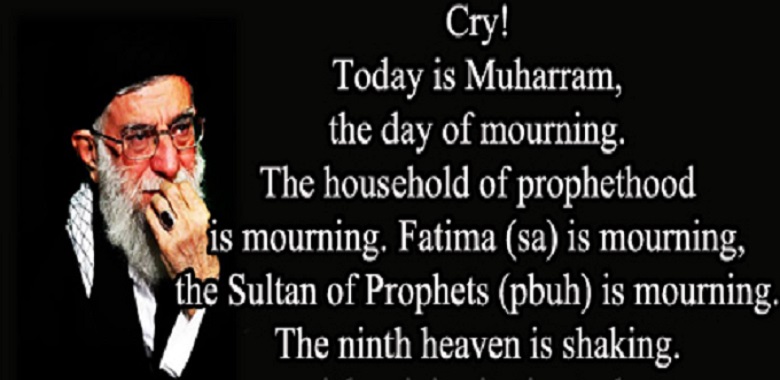Some Sunni scholars consider the act of weeping and mourning for Imam Husain (a.s) as an innovation (i.e. Bid'a), an action which has no basis in the Qur'an and the Prophetic practice (Sunnah). This is while weeping or mourning for the deceased ones is not only in accordance with the Quranic report, but also it was the practice of the Prophet and his pure household (Ahl al-Bayt).

Islam is a universal religion, which conforms to the human nature (i.e. the natural human instincts) and all its legislations are to regulate, and not to abrogate the in-born instincts except if they contradict with the monotheistic principle. Thus, it is in the nature of human to feel happy when something joyful happens to him and to feel sad when an unpleasant thing happens to him.
In the Quranic report, the story of Prophet Ya’qub (a.s) has been mentioned according to which he became blind out of continous grief and sadness for a separation between him and his dear son; Yusuf (a.s). It is pertinent to note that Prophet Ya’qub knew quiet well that Prophet Yusuf was alive nevertheless, he did not stop grieving for him[1].
Similarly, it is documented in several Sunni references that the noble Prophet of Allah and some of his companions used to weep and grieve over the death of their loved ones. For instance, the year the Prophet’s wife; Khadijah and his uncle; Abu-Talib died was referred to by the Prophet as the year of grief. In addition to this, it has been reported that the Prophet wept and mourned over the death of his sons; Ibrahim and Ṭahir respectively[2].
There are several reports in both Sunni and Shia sources which buttress that the noble Prophet was aware of the martyrdom of Imam Husain prior to its occurence. And more importantly, he was not only aware of this and the place where Imam Husain would be martyred, he also mourned and wept bitterly over him[3]. From the day of Ashura, year 61. A.H, this has become the custom of the purified Prophet’s household (Ahl al-Bayt) to mourn and commemorate the day of Ashurah.
In the light of these we can conclude that weeping and mourning for Imam Husain (a.s) on the day of Ashura out of love for the Prophet is nothing but a Prophetic Sunnah (practice ) and the practice of his pure household (a.s).
FOOTNOTES:
[1]Refer to Qur’an Chapter 12: 83-86.
[2]Sunan Abi Dawud, Book 21, Hadith 38; Sunan Ibn Majah, Vol. 1, p. 482, Chapter: Weeping For The Deceased.
[3]Ahmad Ibn Hanbal, Musnad Ahmad, vol.3, p. 60, Hadith 648; Ahmad Ibn Hanbal, Fada'il Sahabah, vol.1, p. 770, Hadith 1357; Ibn Kathir, Al-Bidayah Wa al-Nihayah, vol. 11, p. 570 and 571; Ibn Jawzi, Bustanu al-Wā’izeen Wa Riyādu al-Sāmi’een, p. 261



